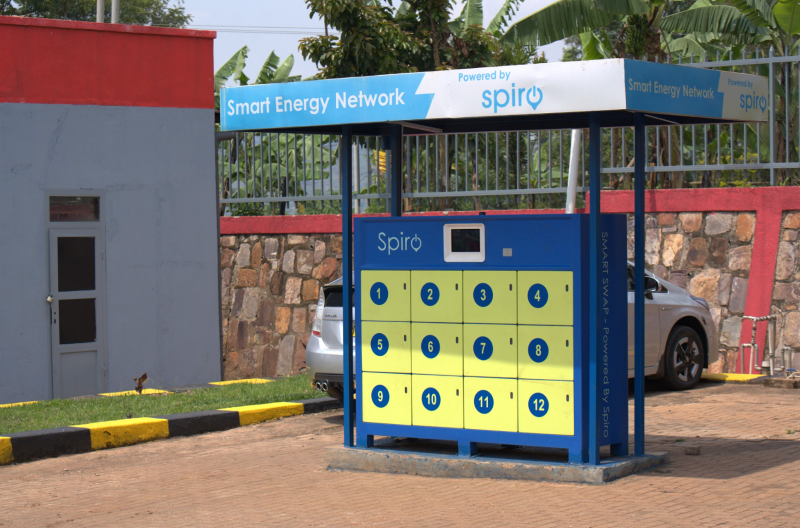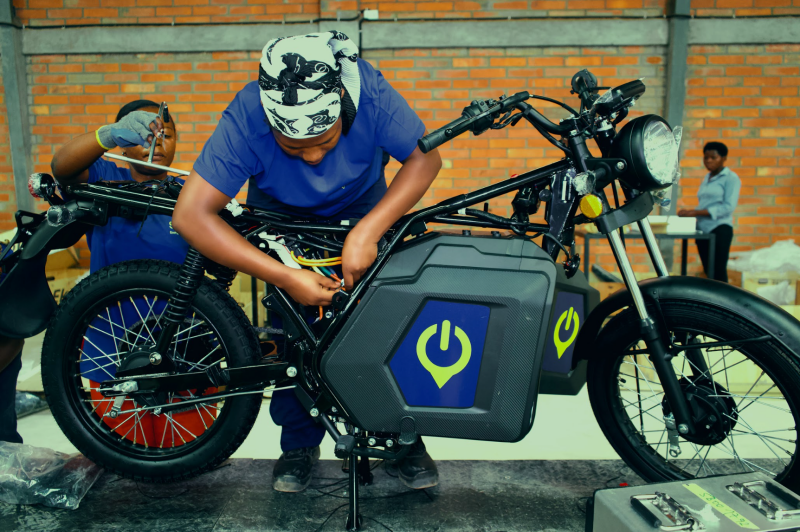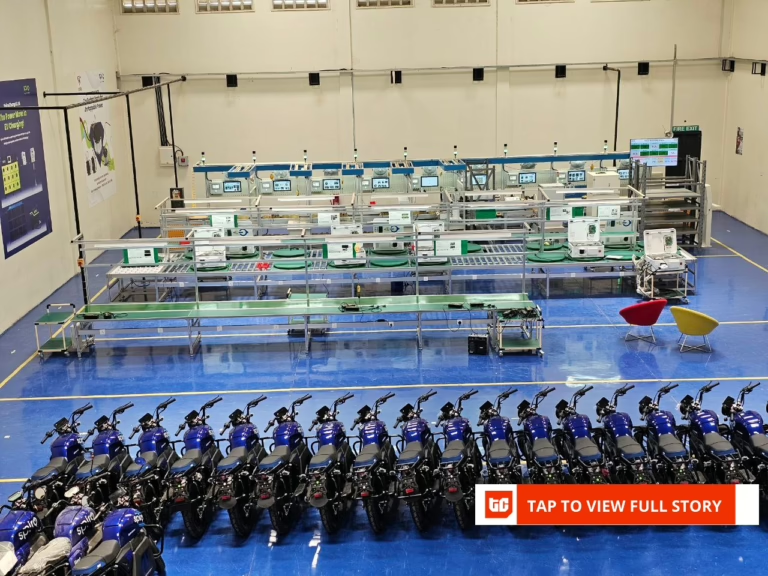On October 6 and 7, I had the opportunity to meet with the Spiro team, including CEO Kaushik Burman, at their headquarters in Westlands. During their visit to Nairobi, they guided guests through their assembly facility located along Mombasa Road.
Spiro is ambitiously positioning itself as the leading electric vehicle (EV) manufacturer across East and West Africa, with a particular emphasis on the mass electrification of two-wheelers. Supported by a $100 million investment from the Equitane Group, the startup concentrates solely on electric motorcycles and the essential infrastructure to support boda-boda (motorcycle taxi) operations.
At the heart of Spiro’s business model lies a battery-as-a-service system. This vertically integrated approach means the company retains ownership of the batteries and operates a network of automated swapping stations. This strategy directly tackles the two main challenges faced by boda-boda riders in adopting EVs: the steep initial cost of batteries and the anxiety over limited charging options. Spiro ensures riders experience minimal downtime by providing battery swaps that take less than a minute.
This innovative model significantly lowers the total cost of ownership for riders, cutting operational expenses by 30% to 50% compared to conventional internal combustion engine (ICE) motorcycles.
These savings stem from eliminating fuel costs and reducing maintenance needs, making electric motorcycles a more economical choice over time. Spiro generates revenue through a KES 290 ($2.24) fee per battery swap. This setup positions Spiro as a utility-like provider, managing both energy supply and maintenance. Unlike competitors such as Roam, Spiro’s batteries cannot be charged at home; all swaps are conducted exclusively at their Petrocity petrol stations.
Local Assembly Hub in Nairobi

Spiro’s commitment to local manufacturing is evident in its assembly plant on Mombasa Road, Nairobi. This facility is a key component of their broader strategy to shift from importing fully assembled units to assembling locally, thereby fostering a supply chain that retains more economic value within the region.
The company operates four manufacturing sites across Kenya, Rwanda, Uganda, and Nigeria, creating a regional network that reduces transportation expenses and generates employment opportunities.
One remarkable aspect of the Nairobi plant is its all-female assembly line. Women constitute over 40% of Spiro’s manufacturing workforce, both directly and indirectly, challenging the traditionally male-dominated sector.
A technician explained that electric bike components arrive as kits. Between 20 and 40 workers, predominantly women, meticulously inspect motor windings, bearings, and seals to ensure waterproofing.
The motors themselves are produced locally.
Assembly involves fitting the motor controller, wiring, battery modules, and management systems, followed by attaching the frame, suspension, brakes, and display units. Each motorcycle undergoes bench testing and road trials before delivery.
“Around 20 of us handle the technical assembly,” a technician shared while tightening a bolt.
Battery Lifecycle and Sustainability
Spiro employs proprietary IoT-enabled platforms for real-time battery tracking, smart diagnostics, and swap optimization, ensuring the safety and performance of its fleet of 100,000 batteries in circulation.
When batteries reach approximately 80% of their original capacity and are no longer suitable for vehicle use, they are repurposed.
The company has partnered with Ace Green Recycling to manage the recycling of end-of-life lithium-ion batteries and manufacturing waste.
While local assembly has reduced costs, most materials for electric motorcycles are still imported, with only 30-40% sourced domestically.
The primary challenge remains the battery cell, which accounts for 35-40% of the vehicle’s cost and is entirely imported. Despite benefiting from tax incentives and reduced logistics costs through local assembly, Spiro remains vulnerable to global price volatility and supply chain disruptions for this critical component.
Technical Details of Spiro Motorcycles
Spiro offers electric motorcycle models designed specifically for the rigorous demands of boda-boda riders. Their flagship, the EKON 450M1, boasts a nominal power output of 4.5 kW (peaking at 9 kW), a top speed under 85 km/h, and a battery range between 80 and 100 km per charge.
The earlier Spiro Commando model delivered 6.5 kW of power, reached speeds up to 80 km/h, and had a range of 40 km per 2 kWh battery.
Both models feature robust suspension systems suited for rough African roads (though most operate on paved urban routes), LED headlights, and metallic storage compartments equipped with USB charging ports.
Operational Scale and Market Presence
Spiro’s expansive operations underscore its leadership in the market, with dynamic growth reflected in recent data.
The company commands roughly 21% of Kenya’s total motorcycle market, including petrol-powered bikes. It holds over 90% of the country’s electric vehicle market share, encompassing both motorcycles and cars, and controls 52% of all electric motorcycles.
With an ambitious near-term goal of 50,000 electric bikes in circulation, recent figures show about 34,000 deployed across Kenya, Uganda, and Rwanda, with the remainder distributed in West African markets. Their growth initiative, dubbed “Project Thunder,” aims to reach 100,000 bikes.
To support the intense usage patterns-where commercial riders often cover 150 to 180 km daily-Spiro maintains a substantial inventory of batteries. The company reports over 100,000 batteries deployed and more than 23 million battery swaps completed.
This high battery-to-bike ratio reflects significant upfront capital investment, essential to guarantee rapid swap times and alleviate range anxiety for high-mileage riders.
The infrastructure includes over 1,000 swap stations, with around 200 located in Kenya, primarily in the western regions.
Cost of Battery Swapping

Spiro’s capital-intensive model involves significant upfront investments in motorcycles, batteries, and swap stations. By retaining battery ownership, the company transforms what would be a costly purchase for riders into a manageable energy subscription.
For riders, the cost structure is predictable and generally more affordable than fueling petrol motorcycles. A typical 80-100 km journey on a Spiro bike costs about $2.24 per battery swap. In comparison, a petrol motorcycle with an 11-litre tank, priced at KES 185 per litre, spends approximately $15.60 to cover 500 km, making Spiro’s solution 30-40% cheaper per kilometre.
Financial Backing and Institutional Support
Since 2022, Spiro has raised over $180 million through multiple funding rounds. Key investors include Afreximbank, Société Générale, and the Africa Transformation and Industrialisation Fund.
In 2023, the company secured $60 million in debt financing from Société Générale and GuarantCo to expand its fleet and battery swapping network in Kenya and Uganda. The following year, it raised an additional $50 million from Afreximbank to support market entry into Cameroon and Morocco and to scale its automated swap infrastructure.
Backing from development finance institutions provides Spiro with patient capital and credibility in climate finance, a level of support rarely offered by private investors for such capital-heavy ventures.
Financing Assets and Expanding Rider Base
While Spiro assumes the risk associated with battery assets, it outsources retail credit risk for the motorcycles through partnerships with vehicle financiers such as Kenya Commercial Bank (KCB), Mogo, and Watu Credit.
This collaboration facilitates rider acquisition by offering financing options accessible even to those without traditional banking services, leveraging mobile money platforms for payments.
In Kenya, the upfront cash price for a Spiro electric motorcycle is relatively high at around KES 295,000 (approximately $2,290), with a down payment of KES 20,000 required for credit purchases.
However, some customers have reported paying as low as KES 195,000 ($1,509) in cash. The $2,290 figure more accurately reflects the total loan cost over 24 to 30 months, including principal, high-interest rates typical of micro-asset financing, insurance, and logbook transfer fees, all managed by the financing partners.
Spiro recently introduced the EKON electric bike in Rwanda at a competitive price of $500, a strategic move to dominate Kigali’s market ahead of government mandates requiring all new public transport vehicles to be electric.
The company’s Nairobi command center monitors live data such as bike range, swap station status, and payment records. According to Raymond Kitunga, Spiro’s deputy country head for Kenya, this transparency is crucial for working with asset financiers who need insight into the customers they support.
Market Execution and Expansion in Kenya

Kenya serves as Spiro’s primary hub, hosting its headquarters and main assembly plant in Nairobi. The company initially launched in Mombasa before expanding operations to Nairobi’s outskirts, including Kiambu, Kajiado, and Machakos, and later to Eldoret and Kisumu.
Currently, Spiro operates over 200 battery swap stations across Kenya, supported by financing partnerships with Watu Credit, KCB, and Mogo.
At the Nairobi plant, I met Kelvin, a rider who had just collected his new bike. He made a KES 25,000 deposit (about $190) through Mogo and plans to pay the remaining balance in daily installments of KES 450 (approximately $3.45) over 18 months, totaling around KES 283,000 ($2,180).
Kelvin intends to use the bike for boda-boda services and has already applied to join Uber as a rider. “I can manage the payments,” he said as he rode off.






















0 Comments